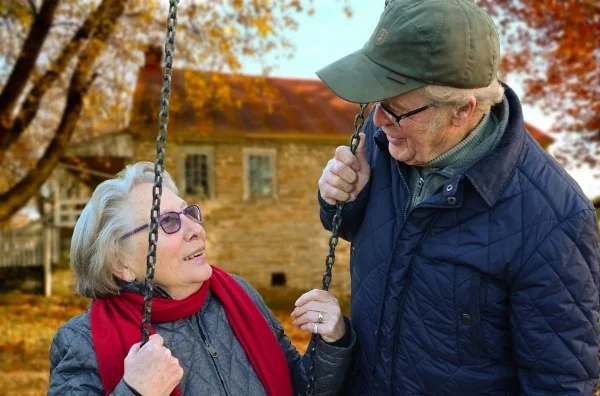We all need a fresh start sometimes. Here’s some help for knowing when to take the leap.
Read MoreSkip the Small Talk founder Ashley Kirsner joined Chase and Sarah Kosterlitz of I Do Podcast to share actionable tips for engaging partners, friends and family in deeper conversations.
Read MoreAs if figuring out what to do on Valentine’s Day isn’t hard enough, a lot of us have some additional pandemic-related parameters this year. So, we’ve come up with ideas for how to have a low-key but meaningful Valentine’s Day at home with your partner. (BONUS: If you’re not with a partner, you can absolutely pick and choose whatever pieces of this feel right to do with a friend or other loved one— we’ve even put together some adapted question prompts at the end of this to ask your friends, family, and other close people).
Read MoreThis week, I’m thinking about the above quote I found via psychologist and author Nedra Tawwab.
Read MoreOkay, we’ll run with the title and make this quick. When someone new is entering your life, whether it’s a friend, a coworker, a romantic interest, or someone else you’re still figuring out how and to what extent you’d like to fit them into your life, try asking yourself:
Read More“Just be yourself!”
“Don’t worry about what other people think of you!”
“Dance like nobody’s watching!”
“To thine own self be true.”
We consume these truisms from the moment our infant brains can understand them and we don’t stop until we’ve seen one too many cliché-littered Pinterest boards. But the reality is, if you’re flailing your limbs on the dance floor without a single thought of who’s watching, or who’s within arm’s reach, you might accidentally smack someone in the face. How do you dance like you’re aware that people are watching, but you know that you’re dancing for yourself, and not for them? How can you think about the space you're taking up on the dance floor without having it affect your self-expression? How soon until we're done with this metaphor? It's important to "be true to yourself," but if you’re not thinking about how others respond to your behavior, you might be missing out on opportunities to connect, and you may even hurt others or yourself in the process.
Whether you’re looking for a good fit with a friend, a romantic partner, or even a new workplace, you’ve probably heard tips like “communication is key” and “stick with someone/somewhere that encourages you to grow” and “go with your gut.” Sometimes even those clichés can be useful, but there are some other “tells” about how any given relationship is going that can be easy to miss if you’re not looking for them, especially since they aren’t as culturally emphasized as platitudes like “follow your heart.” Of course, these aren’t going to be the *only* things you should pay attention to, but they can all be easy to overlook, particularly if you are focusing some portion of your energy on appearing desirable to the other person/ workplace/ whatever.
Five to one: According to one of the most prominent social scientists in the field of romantic relationships, John Gottman, that’s the ratio of positive to negative interactions in stable relationships. Couples were significantly less likely to get a divorce when they had about five positive interactions for every negative interaction they had.
Read MoreWhat do the following have in common?
- A “define the relationship” conversation with a crush
- Mentioning to your roommate that you never check your Facebook messages
- Telling your friend that the way he acts when he’s angry is scary to you
Have you ever felt comfortable telling something intimate to your hair stylist or bartender or ride-share driver, and then finding yourself feeling warm toward them, and perhaps inclined to tip more? Have you ever developed strong feelings for someone you were dating in a low-stakes context, like someone you knew you didn’t want to be with long-term? Then you are likely familiar with what I’ve deemed “the vulnerability paradox.” According to the vulnerability paradox, a pattern I’ve noticed in myself and others, it’s often easier to open up to those we are not relatively close to, yet, the very act of opening up brings us closer.
Read More









